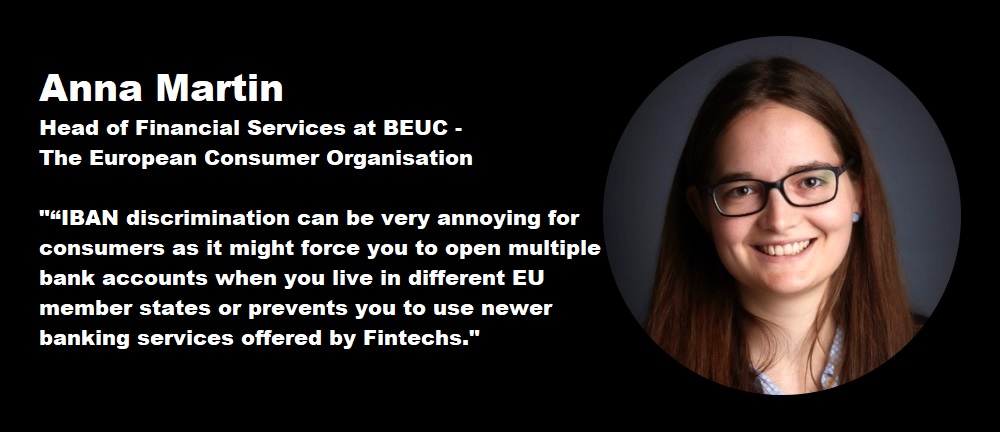
EU consumers continue to face discrimination as a result of the geographical location of their bank accounts, despite the 2014 Single Euro Payments Area (SEPA) Regulation outlawing this, according to a new report published (page 38) by the European Court of Auditors (ECA).
Between February 2021 and September 2023, users reported almost 3 500 cases of alleged IBAN discrimination via the Accept My IBAN platform. These cases are related to cross-border payments within SEPA. The platform is a private-sector initiative, which passes complaints to the relevant competent authority.
IBAN discrimination is most frequently reported in four EU member states, with France and Spain accounting for 31 % and 21 % of all cases respectively. The complaints concern both the private and the public sector. The data collected is likely to reflect the problem only very partially due to a lack of awareness among EU citizens and the fact that other channels for reporting cases of discrimination also exist.
‘IBAN discrimination’ refers to cases where a company or institution refuses to accept a SEPA transfer or payment because the IBAN is from a different EU/EEA country to the one in which the bank or company is based.
“IBAN discrimination can be very annoying for consumers as it might force you to open multiple bank accounts when you live in different EU member states or prevents you to use newer banking services offered by Fintechs,” Anna Martin, Head of financial services at European consumer organisation BEUC told Euronews.
„Since Wise founded Accept My IBAN in 2021, we’ve collected over 4,500 complaints about IBAN discrimination across the EU—most of them in France 🇫🇷 , Spain 🇪🇸 , Germany 🇩🇪 , and Italy 🇮🇹 . Despite the SEPA Regulation coming into force in 2014, there are clear enforcement gaps leading to violations across all sectors.” – says Linda Strazdiņa, EU Policy & Government Relations at Wise.
The SEPA Regulation states that penalties for IBAN discrimination should be effective, proportionate and dissuasive, but does not require the Commission to assess them. Penalties varied significantly among member states.
Minimum penalties range from €250 to €10 000, though not all countries have set minimums.
Maximum penalties range from €3 500 to (in the case of companies) €10 million plus up to 10 % of annual turnover. The European Forum for Innovation in Payments, a joint initiative of the Commission and the ECB, suggested that competent authorities should impose fines proportionate to the cost of compliance, but this has not yet led to any adjustments to the fine levels.
In 2023, the EBA pointed to the growing phenomenon of virtual IBANs – one way in which PSPs are responding to IBAN discrimination. Virtual IBANs that are not directly linked to a physical payment account but redirect incoming payments to IBANs associated with such accounts68. In a report highlighting the risks and challenges of virtual IBANs the EBA found that their use causes issues related to money laundering, consumer and depositor protection, authorisation and passporting, and regulatory arbitrage.
„In this context, we note that unlike the Anti-Money Laundering Directive and PSD2, the SEPA Regulation falls outside the scope of the EBA’s activities. Consequently, the EBA cannot assess the supervisory convergence of national competent authorities in this field.” – according to the report.
Commenting about the solution to the IBAN discrimination issue, European Fintech Association believes that stronger and more uniform penalties across member states, along with proactive monitoring and enforcement by regulators, are essential to ensure compliance with the SEPA regulation.
Ideally, EFA added, Europe should benefit from a single EU IBAN number, further strengthening the single market rather than making companies see the EU as a fragmented market where it is more difficult to do business.
The EU Commission accepted the recommendations but made it clear that the effectiveness of its action depends to a large extent on the determination of the competent national authorities to implement and enforce dissuasive and punitive measures at the national level.
Banking 4.0 – „how was the experience for you”
„To be honest I think that Sinaia, your conference, is much better then Davos.”
Many more interesting quotes in the video below: